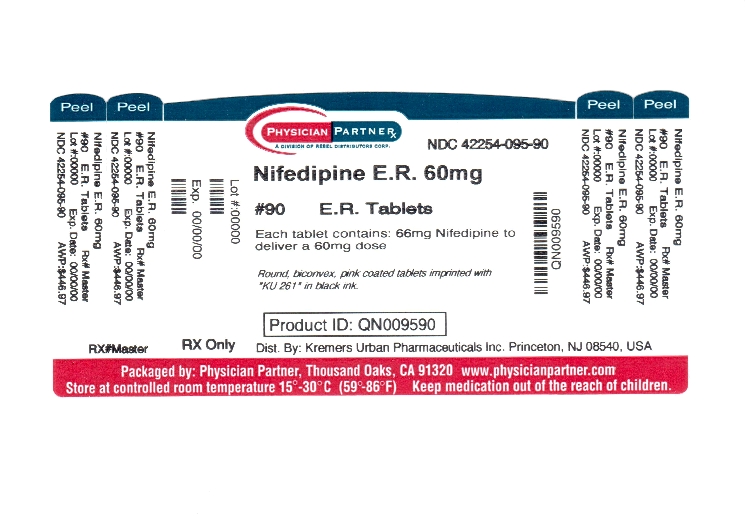Nifedipine Tablet, Film Coated, Extended Release while Breastfeeding

What is Nifedipine Tablet, Film Coated, Extended Release used for?
Is using Nifedipine Tablet, Film Coated, Extended Release unsafe in breastfeeding? Can there be bad consequences for baby if I use it while breastfeeding?

Nifedipine Tablet, Film Coated, Extended Release Breastfeeding Analsys
Nifedipine while Breastfeeding
SafeCAS Number: 21829-25-4
Excreted into breast milk in non-significant amount with no problems among breastfed infants whose mothers were treated with this medication. No alteration on breast milk composition has been seen. Shown to be effective at a dose of 10 - 20 mg three times-a-day for pain relief related to Raynaud's phenomena of the nipple, which is a highly painful vasospasm triggered by cold exposition or trauma produced by inadequate latch-on to the breast. Side effect on the mother should be addressed. American Academy of Pediatrics 2001: Maternal Medication Usually Compatible With Breastfeeding. Eleventh WHO Model List of Essential Drugs 2002: Compatible with breastfeeding.
Nifedipine Tablet, Film Coated, Extended Release Breastfeeding Analsys - 2
Nifedipine while Breastfeeding
CAS Number: 21829-25-4
Because of the low levels of nifedipine in breastmilk, amounts ingested by the infant are small and no adverse effects have been reported among a limited number of infants exposed to nifedipine in breastmilk. Nifedipine is used to treat painful nipple vasospasm (e.g., Raynaud phenomenon) in nursing mothers.[1]
What should I do if already breastfed my kid after using Nifedipine Tablet, Film Coated, Extended Release?
As usage of Nifedipine Tablet, Film Coated, Extended Release is mostly safe while breastfeeding hence there should not be any concern. In case of any change in behavior or health of your baby you should inform your health care provider about usage of Nifedipine Tablet, Film Coated, Extended Release else no further action is required.
My health care provider has asked me to use Nifedipine Tablet, Film Coated, Extended Release, what to do?
Definitely, Nifedipine Tablet, Film Coated, Extended Release is safe in lactation for baby. No wonder your doctor has recommended it.
If I am using Nifedipine Tablet, Film Coated, Extended Release, will my baby need extra monitoring?
No extra baby monitoring required while mother is using Nifedipine Tablet, Film Coated, Extended Release
Who can I talk to if I have questions about usage of Nifedipine Tablet, Film Coated, Extended Release in breastfeeding?
US
National Womens Health and Breastfeeding Helpline: 800-994-9662 (TDD 888-220-5446) 9 a.m. and 6 p.m. ET, Monday through Friday
UK
National Breastfeeding Helpline: 0300-100-0212 9.30am to 9.30pm, daily
Association of Breastfeeding Mothers: 0300-330-5453
La Leche League: 0345-120-2918
The Breastfeeding Network supporter line in Bengali and Sylheti: 0300-456-2421
National Childbirth Trust (NCT): 0300-330-0700
Australia
National Breastfeeding Helpline: 1800-686-268 24 hours a day, 7 days a week
Canada
Telehealth Ontario for breastfeeding: 1-866-797-0000 24 hours a day, 7 days a week
